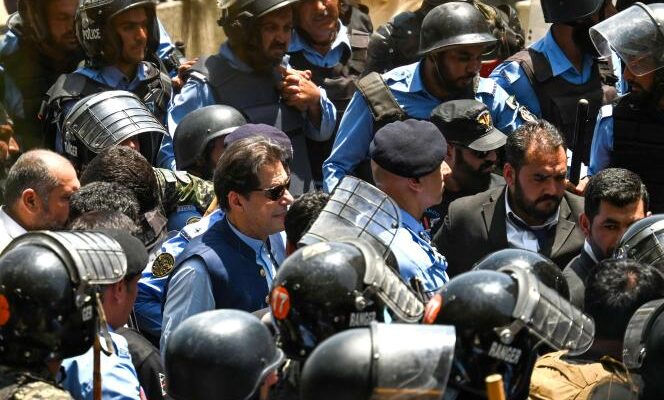Ayesha Siddiqa, associate researcher at King’s College London and specialist in the Pakistani army, reflects on the unprecedented crisis in Pakistan and the protest movement that erupted after the arrest, Tuesday, May 9, of Imran Khan . The former prime minister was released on Friday by court order for two weeks.
What are the reasons for the anger of the Pakistanis?
The Pakistanis demonstrating are supporters of Pakistan-Tehrik-e-Insaf (PTI), Imran Khan’s formation, but the movement is spontaneous and not controlled by party officials. The sudden anger represents seven decades of frustration in a society that has seen the military constantly interfere in the country’s political, economic and even societal affairs.
The army is therefore at the heart of the problems that Pakistan is experiencing today…
She is part of the problem. Very soon after the creation of Pakistan, seventy-five years ago, the army extended its power and tried to establish its autonomy vis-à-vis Parliament and political actors. Initially, civilians were in charge and the army followed, but this relationship began to change with the first martial law in 1958. Today, the army gives the there and civilian actors follow.
The control of the military over the state and the civil-military conflict that followed destroyed all the institutions. The judicial system is divided. The civil bureaucracy is completely weakened, unable to fulfill its mission. The political parties are deeply confused, they do not know how to structure their forces in Parliament, an institution in which they do not believe. The conflict between civilians and the military became particularly intense in the 1990s, the army trying to establish its political, economic but also intellectual hegemony.
Is Imran Khan the only one to challenge the power of the army?
On the surface, but in reality, this protest is much broader and includes the other political parties that pushed Imran Khan out, with the support of the military. They blame the military for bringing Imran Khan to power in 2018 and believe the time has come for them to assert themselves. They consider that the army must now support them. The military remain central, even in the confrontation between the parties. It is not simply a matter of elections.
What do Pakistanis want?
The new generation of Pakistanis, young people and women, are fed up with the political dynasties that have ruled for decades and are ready to vote for Imran Khan, even if not everyone likes him. Sixty percent of the population is between 18 and 35 years old.
You have 58.79% of this article left to read. The following is for subscribers only.
